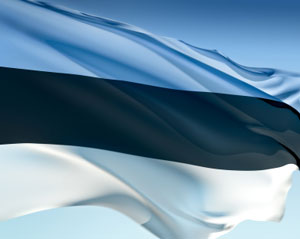The Singing War July 25, 2014
Author: Beach Combing | in : Contemporary , trackbackRevolutions are normally violent affairs. Popular anger leads to stupid and brutal acts. The French Revolution might stand as the archetype here with nice ideas thrashing out of control: liberty, fraternity and equality turning all too quickly into horror, fratricide and indiscriminate killing. But there are a select group of revolutions where a determined population manages to keep its head and to work change with no or little blood being spilt. Very often these revolutions are carried out from positions of weakness where violence is simply not an option: nor do they work against ruthless regimes, a Stalin or a Hitler would make very short shrift of such things; but a regime in decline or one that is questioning its own moral authority, the British Raj say, can often be swayed. Enter the Estonian singing wars of the late 1980s.
Estonia is a small Baltic state (there are no big Baltic states), and one with an unusual non-Indo-European language, a cousin of Finnish. Estonia had, as many central European powers, a ghastly twentieth century. Yes, it had started well enough in 1919 with fighting against both the Soviets and Germans leading to independence in 1920. However, independence was brief. The Soviet Union invaded in 1939, Nazi Germany in 1941, then in 1944 Estonia was conquered again by the Soviets. All three occupations were steeped in blood, the Soviets have often been accused of genocide against the Estonian people, an entirely credible charge: some tens of thousands were murdered in the ‘year of suffering’ from August 1939 to 1940 in a nation of just one million.
Why sing against the Soviets? There were three factors: singing was a particularly important part of Estonian culture (the parallel with Wales is interesting here); naturally enough singing festivals were a large part of Estonian life, which had involved, since the nineteenth century, Estonians coming together from all over the country; and the Soviet Union, in its wisdom, periodically banned certain Estonian songs. In the Soviet era you travelled a hundred miles, you halfheartedly sang socialist gibberish and then thousands of word perfect Estonians would belt out the lyrics in unison to ‘Land of our Fathers’ (the unofficial national anthem) or another patriotic piece. Sometimes this led to tensions. In a major festival in 1969 Estonian choirs refused to leave the stage and the entire crowd began to scream for ‘Land of our Fathers’ until party heads ceded and allowed the choirs to sing. Songs and singing festivals had become the field for a proxy cultural war.
1969 was a song battle. The song war began in the late 1980s as part of the liberalization of the Soviet Union under Mikhail Gorbachev. In Estonia, as elsewhere in the Soviet Union, protests against the Soviets were incremental. In 1987 many Estonians came out against strip-mining in the country: the first large-scale protests since Soviet Occupation. But the habit was impossible to restrict to peripheral issues and 23 August at Hirve Park the first nationalist protest was held: with thousands turning up, demanding, inter alia, that ‘Stalin’s butchers’ should be put on trial. Then in the spring of 1988 tens of thousands of protestors came to Tartu for a much larger shouting match. By now the snowball was rolling down the hill and nothing but a very hard rock would have stopped it. It is difficult not to feel a sliver of sympathy for Gorbachev. With good or bad intentions only a bloody, bloody invasion could have halted the changes in Estonia and in the other Baltic states, Latvia and Lithuania.
The Balts, generally, proved brilliant operators against the Soviet tyrant, original and brave by turns. They organized human chains, they had illegal citizenship drives, but most winningly the Estonians sang. The first great sing-in was a pop festival in 1988 at Tallinn. One band left the stage as they were not allowed to sing an Estonian national song, and led a hundred thousand Estonians (in a nation of a million!) outside the grounds to sing there, where, for the first time since the Soviet Union had decided to murder Estonia, tens of Estonian flags were flown. Witnesses describe the experience as electric and life-changing. Tallinn Pop Festival should surely stand as the most important rock concert in history: so much more consequential than Hyde Park, Glastonbury (I-XX) or flower children walking around nude at Woodstock. In September of the same year an incredible 300,000 Estonians came to the same place, by now a hallowed site of nation-making. The event was not as spontaneous as the pop festival four months before, but it served its purpose. The crowd listened to speeches and then voted with their voices. Within three years Estonia was independent: despite scores of tanks on the streets not a single Estonian was killed. How many revolutionaries can boast that?
Other unusually peaceful revolutions: drbeachcombing AT yahoo DOT com



